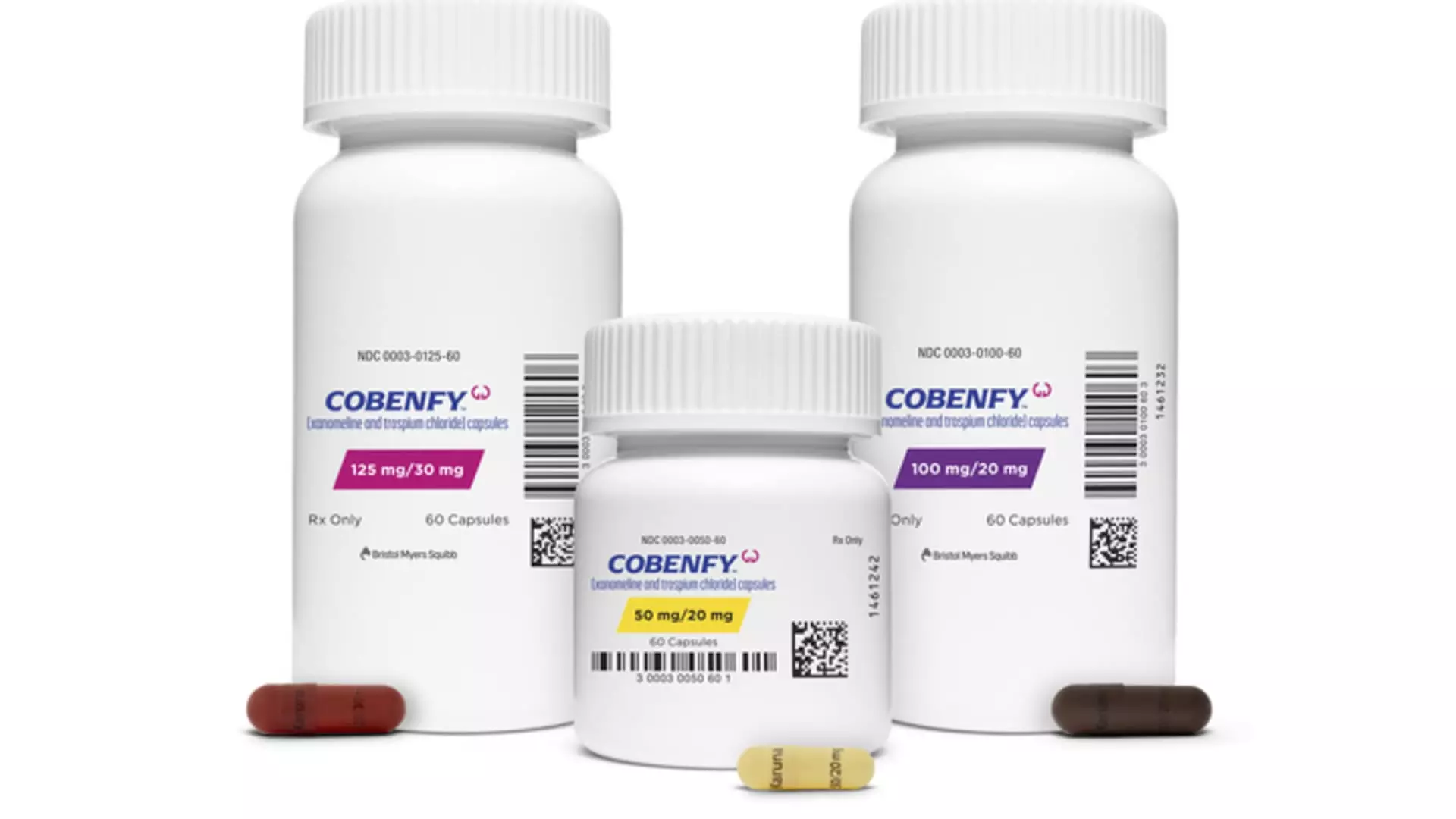On a pivotal Thursday, the Food and Drug Administration (FDA) granted approval to Cobenfy, a groundbreaking medication developed by Bristol Myers Squibb for the treatment of schizophrenia. This innovative drug marks the first significant advancement in schizophrenia treatment in over 70 years. Schizophrenia is a chronic mental health disorder that profoundly disrupts an individual’s cognition, emotional stability, and social functioning, often leading to symptoms such as paranoia, hallucinations, and profound changes in behavior. For many, these symptoms impair daily living, adversely affecting their ability to participate in educational or occupational activities and maintain relationships. Diagnosis typically occurs between late adolescence and early adulthood, underscoring the need for effective treatment options during a critical developmental phase.
With nearly 3 million adults in the United States grappling with schizophrenia, Cobenfy arrives as a crucial new option for a population that historically struggles to find adequate treatments. Astonishingly, it is estimated that only 1.6 million affected individuals seek treatment, and of those treated, a staggering 75% cease medication within the first 18 months, often due to intolerable side effects or ineffective results. Bristol Myers Squibb anticipates making Cobenfy available to patients by late October, offering renewed hope for many who have been let down by conventional therapies.
Cobenfy’s approval also signifies a potential financial boon for Bristol Myers Squibb, especially in the context of impending revenue declines following the patent expirations of existing top-selling medications. Analysts project that Cobenfy could evolve into a multi-billion dollar revenue stream. However, the launch might be gradual, with expectations that the drug will not significantly impact financial figures in 2024 and 2025.
The approval of Cobenfy represents a watershed moment in both clinical practice and public discourse surrounding schizophrenia. Andrew Miller, an esteemed figure in psychiatric research, is optimistic that this breakthrough will bring much-needed attention to schizophrenia—an often marginalized field within mental health studies. Miller forecasts a long-term shift, hoping that in the next decade, Cobenfy will demonstrate marked improvements in patient outcomes, enhancing the support available for both patients and caregivers.
Economically, Cobenfy carries a hefty price tag—$1,850 for a month’s supply, which translates to roughly $22,500 annually for uninsured patients. However, Bristol Myers Squibb representatives maintain that this pricing aligns with existing branded options, emphasizing that the vast majority of patients will face limited out-of-pocket expenses via government insurance programs such as Medicare and Medicaid. This reflects a concerted effort to mitigate financial burdens for a population that is predominantly reliant on state-sponsored healthcare.
Competitive Landscape and Challenges
Despite its promising development, Cobenfy will have to navigate a competitive landscape replete with established antipsychotic medications that are available at lower prices, particularly those generic treatments. For instance, patients without insurance can obtain the generic version of Abilify for as little as $16 for a month’s supply, representing a significant barrier for Cobenfy. Additionally, traditional antipsychotics work by blocking dopamine receptors in the brain—a method historically effective but often accompanied by severe side effects like weight gain, fatigue, and movement disorders. Notably, around one-third of individuals with schizophrenia do not respond well to these conventional treatments, highlighting the urgency for innovative alternatives.
Cobenfy is distinguished by its unique mechanism of action; it does not work by directly blocking dopamine receptors. Instead, it utilizes xanomeline to activate specific muscarinic receptors in the brain, which modulates dopamine activity. The other component, trospium, addresses gastrointestinal side effects linked to xanomeline. Bristol Myers Squibb expects Cobenfy to redefine standard treatment protocols, especially as healthcare providers become better acquainted with its use.
Cobenfy’s arrival on the market embodies hope for millions living with schizophrenia, promising an alternative that aims to alleviate some of the profound challenges they face. While there are hurdles to overcome, including competitive pricing and the necessity for thorough physician education, the potential for Cobenfy to transform treatment methodologies cannot be understated. The decision to approve this first-of-its-kind drug bolsters hopes for reducing the stigma surrounding mental health disorders and enhancing the quality of life for countless patients. As Bristol Myers Squibb embarks on this new chapter, the long-term implications resonate far beyond financial estimates, potentially reshaping the future landscape of psychiatric care.

